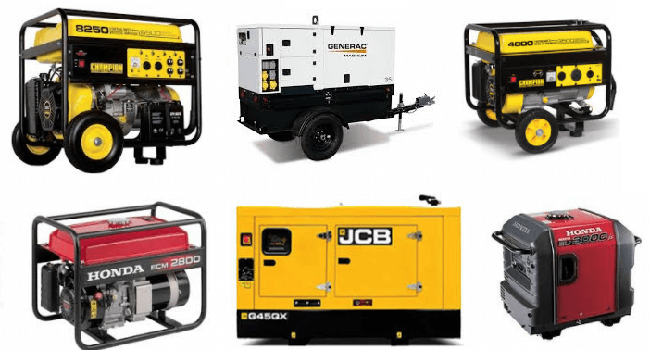Business
New report shows Nigeria is highest importer of generator in Africa

The International Renewable Energy Agency (IRENA)has said Nigeria is the highest importer of Premium Motor Spirit (PMS) and diesel generator in Africa, and one of the largest importers worldwide
In a new report released by the agency for the month of January 2023, titled; ‘Renewable Energy Roadmap: Nigeria’, it was said that no other African country imports as many generators as the largest economy on the continent does.
The global intergovernmental agency for energy transformation blamed it on poor electricity supply in the country and lack of financing in the power sector.
It was disclosed that households and small and medium-sized enterprises spend more on kerosene, fuel and diesel compared to grid electricity.Read more
As a result, Nigerian products are approximately one-third more expensive than goods imported into the country, “Given the several million captive generators imported into the country, Nigeria leads Africa as the highest importer of generators and is also one of the largest importers worldwide.
“Nigeria’s erratic power supply systems and the relatively expensive captive generation negatively impact the economy from the residential to the industry sector.
READ ALSO:Data shows almost half Nigeria’s electricity supply is from generators despite promises
“Owing to the high costs of captive generation, households and small and medium-sized enterprises spend between two and three times more on kerosene, diesel and petrol than they do on electricity from the grid. In industry, government figures suggest that the cost of self-generating power makes Nigerian products approximately one-third more expensive than imports,” the report reads.
Commenting on the funding issue, IRENA said the industry needs $34.5 billion to power all households by 2030, “In terms of improving electricity access, around $34.5 billion in total investment will be required to provide electricity access to all households by 2030.
“The Transmission Company of Nigeria (TCN) suggests that rehabilitation and expansion of the grid will require an annual investment of $1 billion for the next ten years.”
The report reads that investment in renewables is more cost-effective than the conventional pathway, explaining, “investment in renewables is cost-effective – it is cheaper than the planned case, regardless of the economic growth rate achieved.
“Therefore, by using its abundant and largely untapped renewable energy resources, Nigeria could provide sustainable energy for all its citizens in a cost-effective manner.
“However, the study also shows that under very high economic growth (10% annual gross domestic product [GDP] growth rate), current energy policies would be insufficient to meet the total electricity needs of Nigeria by 2050, with substantial shares of distributed oil-based generation needing to remain in the Nigerian electricity supply mix.”
Join the conversation
Support Ripples Nigeria, hold up solutions journalism
Balanced, fearless journalism driven by data comes at huge financial costs.
As a media platform, we hold leadership accountable and will not trade the right to press freedom and free speech for a piece of cake.
If you like what we do, and are ready to uphold solutions journalism, kindly donate to the Ripples Nigeria cause.
Your support would help to ensure that citizens and institutions continue to have free access to credible and reliable information for societal development.












